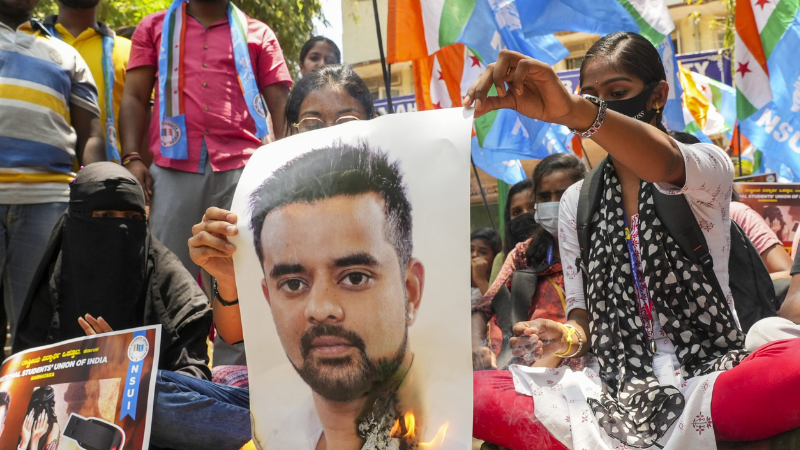
The Central Bureau of Investigation has issued a blue corner notice against Prajwal Revanna, who is a MP from Hassan Constituency and currently faces serious allegations of sexual assault and rape. Prajwal Revanna has also fled the nation and absconded to Germany on a diplomatic passport.
What is a Blue Corner Notice?
A blue corner notice is one of several color-coded notices issued by Interpol, with each color representing a distinct type of message among the seven categories. These notices allow countries to exchange alerts and requests for information on wanted persons or criminal activities globally. This international collaboration is essential for addressing criminal activities that transcend borders.
Interpol releases these notices upon the request of a member country’s National Central Bureau and distributes them to all member nations. As in this case as well, the SIT, i.e., the Special Investigation Team, requested that the that the CBI issue a Blue Corner Notice against Prajwal Revanna from the CBI, as the CBI is India’s nodal body for Interpol cases.
Interpol has its headquarters in Lyon, France. Interpol facilitates worldwide police collaboration and efforts in crime prevention, serving as the largest international police organization globally.
A blue corner notice denotes gathering more details about an individual’s identity, whereabouts, or involvement in a criminal inquiry. A similar blue corner notice was issued to find fugitive Godman Nithyananda, who had left the country amid accusations of sexual abuse and rape in 2019.
Implications of a Blue Corner Notice
At this time, a blue notice serves only to assist the investigating agencies. The CBI website refers to blue corner notices as ‘B Series (Blue) Notices’ or “enquiry notices,” which are issued “to have someone’s identity verified; to obtain particulars of a person’s criminal record; to locate someone who is missing, is an identified or unidentified international criminal, or is wanted for a violation of ordinary criminal law and whose extradition may be requested.”




